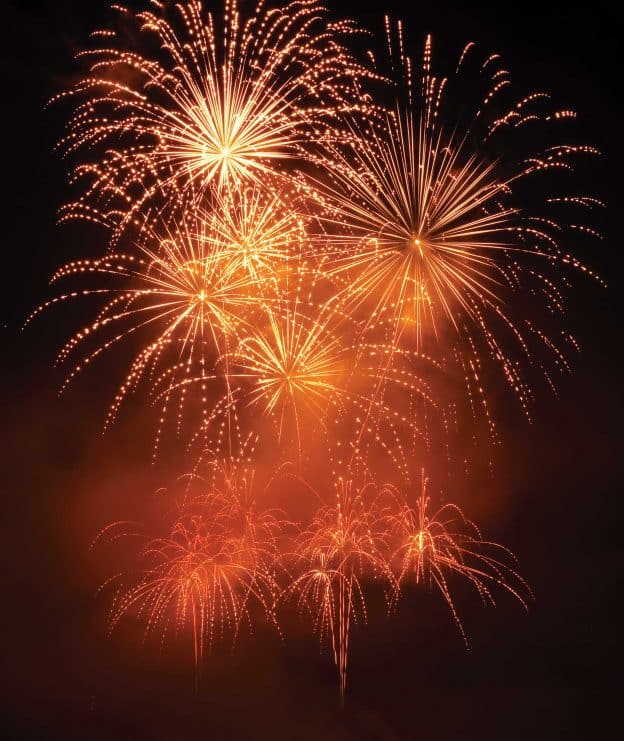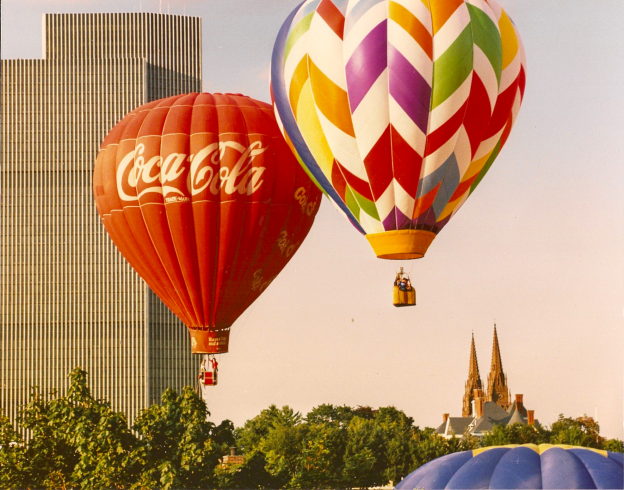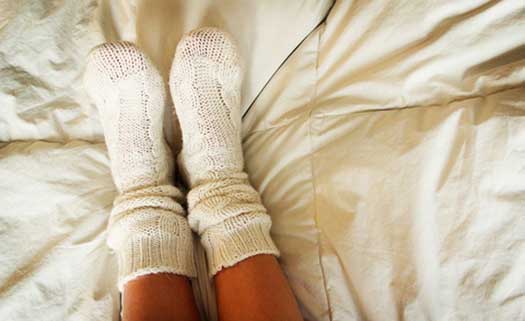Short stories for old-timers who are still young at heart.
Short stories for old-timers who are still young at heart.

The sun would set in another hour. Tired rain clouds, still proud, framed the sky, their burden delivered hours before. From the top of the hill, trees in summer leaf spread out across the valley.
Nothing moved. All was suspended until the sun had set. Even the trees were still. Yet hidden in their branches, thousands of birds filled the air with their evensong, chirping and calling, cheeping singing in gentle cacophony. Surely an alien would think that trees on earth were capable of speaking for so it seemed even to us.
Originally it was just Dave, myself, Ralph and George on the roof to see the Fourth July fireworks. We brought popcorn and fixings for gimlets and while Dave set his camera on the tripod, Ralph and George lit up a joint in the shelter of the stairwell. I made myself a drink considering the best possible spot for observing the display.
The roof was of an old parking garage converted into a warehouse converted into artist loft spaces. Four floors up, it provided an unobstructed view of the downtown plaza from where fireworks would spring, come dusk.
The old-fashioned city spread out before us. Three-story frame and brownstone houses obscured by hundred year old maples stretched between our vantage point and the plaza — a monolithic complex of 14-story government buildings jutting into the eastern sky.
Rising from the summer evening streets and backyards like mist from a country field came the sounds of firecrackers. Hundreds of firecrackers, popping and banging throughout the city. Occasionally, a skyrocket shot through the sheltering trees, scarring the sky for a hot pink instant.
As darkness approached , I could feel anticipation growing in the streets below. Cars scooted across side streets. The frequent pop-and-glow of the home fireworks dimmed, and an expectant silence underscored the hushed atmosphere.
We had heard there would be upwards of 50,000 people on the downtown plaza. As we ourselves had retreated uptown to our rooftop, summery couples, families, laughing groups, converged on downtown. Fifty thousand people in the plaza, in a half mile square area. Fifty thousand people waiting.
Throughout the city on rooftops and rises everywhere were thousands more. Waiting for dusk and the Fourth of July fireworks.

When I was a teenager, he worked at the gas station. Not the one my parents used. But when I started to drive, I’d drive in and he’d check the air in the tires. I never needed gas. The tires never needed air.
He was tallish. Thin with muscles on his arms. Dark curly hair and a boney face with deep, dark eyes. Serious. Always working, it seemed to me.
I never saw him in the winter when I was in school. My dad would get the paper on Sundays. I didn’t drive in the winter because of the snow. It was as if Arnie were a part of summer.
There was a romance about him because of that.
(If you are inspired to add to this fragment and move this story forward, use the comment section below!)

When the big red balloon is filled with hot air
It rises.
To be nudged by an evening breeze
First left, then right
Or carried downwind like an inflated sail
Blooming in the clear morning.
In the beginning there are
yards and yards of billowing cloth
Inflated by an electric fan.
Then the propane flame heats
the air in that red cave.
Heat.
Spew heat.
Wait. Spew heat.
Spew. Keep it hot. Keep it hot.
The warm air takes the shape of a
balloon clutching a tiny basket
with its wire claws.
We rise.
The horizon expands.
The countryside spreads below.
The basket becomes a floating room In the evening sky.
Keep it hot. Keep it hot. Spew.
The burners stop all comment.
The heat beats down on one’s head.
The world unfolds on an idle breeze. So.
Then there’s a sinking.
Gradually noticeable.
Then hard not to notice.
Still spewing, but lower.
Much lower.
Now hesitant. Suspended for a moment.
Then down again with knees bent.
Bouncing the way a ping pong ball clicks across the table.
We come to rest.
The red balloon preens before an admiring crowd.
Spew.
A beacon to the neighborhood.
Perched upon the earth…almost floating.
“Weight!”
Nailed to the earth by willing helpers.
Now pulling the thermal plug.
Hot air mingles with the cold.
The red balloon shivers.
Collapsing its heat into the night.
Spread shriveled on the ground
its claws are loosened from the prisoner basket.
Condensed into a canvas sack
The splendor awaits
The propane torch.

I dose through the alarm, as I did a month ago when it really mattered. Then I hear James get up over my head. I imagine him stumping down the hallway to the bathroom. The morning doesn’t penetrate the shaded living room. I must wait for a shaved and suited James to open the front door for the morning paper before I can tell what kind of day it is.
Most of the days are gray. It is November. A good month to stay inside if you have to, says James. I hear him coming down the stair now, and I will get up and join him for breakfast. I breathe deeply and ponderously roll over, swing my legs over the edge and wait frozen while every muscle in my abdomen cramps uncontrollably. I walk, still in sitting position, to the downstairs bathroom, first stop on the way to breakfast.
I treasure the mornings for their human contact. James and I talk, read the paper, share a meal. Soon he will leave for the office and I will head back to bed or try to amuse myself in the three small rooms that are my 24-hour domain. The day stretches before me, something I wish my stomach muscles would do. The house is full of house sounds. I know the hum of the furnace, the bang of the water heater, the click of the clock, like I never have before.
A month ago, I rose at 7:30 am, bathed and dressed, breakfasted and tore off to another city 20 minutes away. There I would write and telephone, meet and plan cultural programs for the county. Often, I would remain at work until 7 or 8 pm, tidying up various projects, preparing artwork. Scooping up groceries on the way home, I’d prepare dinner, wash dishes and then, leave home again for a band rehearsal in which I play piano. Sodden with fatigue, James and I would share our day in the darkness – perhaps our bodies. He would sleep; I would lie upstairs in the front bedroom thinking about what was done, what needed to be done.
Today I brush my teeth in the kitchen sink, wondering if I can muster the energy to clear the table. I climbed a 4,000-foot mountain in August and could swim 30 laps. Now I must wonder if I can remain standing for 30 minutes. A napkin drops to the floor. Everything ends of on the floor. And the distance to the floor seems more than five feet seven and one-half inches these days. Restless, I force myself to sit in an easy chair. I see many small things that I could do. Each little chore involves some aspect I am unable to handle. Because, I am now sure, every movement in our lives needs abdominal muscles to see it through. And my muscles are not functioning.
The doctor’s instructions were minimal. No heavy lifting, no strenuous activity, frequent rest periods, short walks or rides in the car. No driving. What is heavy? The bureau drawer? The laundered bedspread? What is strenuous? Sweeping the floor?
My nightgown collection is quite fashionable these days. I hadn’t worn nightclothes for years. There was no need. But I feel more vulnerable (and it certainly is more chilly) sleeping alone.
One thing I can do is make tea. I’ve made gallons of tea. Red zinger tea, ginseng tea, black tea, lemon tea. Tea with milk, tea without. Tea in mugs, in cups. Tea with friends over for a visit. Tea alone at the kitchen table watching the rare sunlight playing with the cat in the yard.
I think about what my body is doing to heal itself. Which nerve or muscle or stitch became whole first. How my innards have rearranged themselves to accommodate what’s missing. I wonder on which day in the future I will suddenly discover I haven’t given any thought to the surgery at all.
My conclusion can only be that the surgeon made an excellent incision and closed it with perfection. I felt like a post-operative art object. Each morning in the hospital, a covey of rubber-soled interns would enter my room and encircle the bed. The resident doctor would gently ask my permission to examine the scar. Discretely drawing my bedclothes back. a hush would fall over the assembled. They admired the surgeon’s handiwork with oo’s and ah’s. Perhaps Venus De Milo had this trouble when she was a work in progress.
The only thing about pain killers is that you feel extraordinarily fine while you’re taking them, and later, when you try to recall how badly you felt, so as to console yourself that you are feeling better, all you can remember is a dreamlike sense of pleasure covering pain, like rocks beneath a snowfall.
James calls at noontime. We lunch together by phone and chat. I recite the items received in the mail – mostly bills. We think about what we’ll have for dinner and whether James needs to stop for groceries on the way home. Too soon I’m silenced again. Restless, I walk: dining room, living room, dining room, kitchen. Back and forth, back and forth.
The loneliest thing I’ve ever done was to admit myself to the hospital. I felt fine. The doctor had said the cyst had to come out. I packed by bag, drove myself uptown and reported to the hospital admitting office. I felt fine.
The secretary instructed me to sign the release form. According to the form anything could happen to me while in the hospital. The planned procedures could lead to innumerable complications. I could bleed to death. The doctors might and could remove anything that looked suspicious, while I slept. Under anesthesia I could have heart failure, cease to breathe, go blind, become comatose. And this form would release the hospital and all its personnel from any responsibility. And I wouldn’t be able to do anything about it. I felt fine.
I cried.
Measurement of recovery isn’t in days, there are no mile markers, there is only a flow of change, infinitesimal adjustments, until one day you realize you scooped up the pillow that fell from the couch – just like that. It doesn’t really take a long time to recover, it just takes a long time to notice.
Tonight, waiting for James, I carefully choose the plant that will decorate our dinner table and these dishes because we’re having this kind of food. Visual serenity and complement is nurture for eyes that have only three rooms to look at. James comes in. His cheeks are cold. He’s hungry. He has never mentioned how he felt as he listened to me explain my discomfort, watched me struggle to move, or silently included all my household chores with his own. Except once. He was helping me take a bath. He won’t let me bathe alone for fear I’ll fall. After all, John Glenn, poor man, had trouble staying upright in the tub and he hadn’t had any surgery. I was finally dressed and ready. I thanked him and we put our arms around each other. It was then that I felt the surge of his need, the full measure of his love and concern. This time of strangeness and unreality for me was just that for him as well. When I recover, he will have also, and together we will both be whole again.
Photo: © Pontus Edenberg | Dreamstime.com